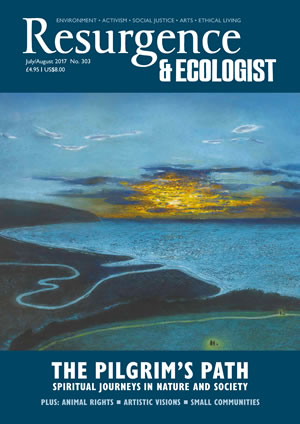Born in Kénadsa, Southern Algeria, and brought up in France, Pierre Rabhi lives as a simple farmer in Southern Ardèche. He is a pioneer of ecological agriculture, a specialist in reversing the process of desertification, and an international expert on food security.
He is also a man of parables, and As in the Heart, So in the Earth is a perfect representation of how he creatively weaves the ancient art of storytelling into a deep reflection on human behaviour. Rooted in the belief that a story liberates us from the confines of our intellect, Rabhi uses storytelling not to entertain, but to help us to learn with our hearts.
Do not expect, therefore, a rationalistic critique of the negative effects of industrial agriculture and economic growth, or a step-by-step guide on how to do these differently. Instead, you will enter the world of a fictional North African tribe called the Batifons, whose existence is under threat due to the ravages of the West and the modern world. You will meet the enigmatic elder Tyemoro, whose exceptional memory is the product of the great oral tradition passed down from his ancestors.
The story is told through the eyes of an ethnologist named François, whose purpose in the Batifons’ village, Membele, has been to study and record the Batifon language before it disappears. Yet on this visit Tyemoro decides to tell François a more important story about the encroaching desert and the desertification of the soil, at the centre of which is the desertification of the soul, seduced by the empty offerings of the modern world. We are shown how modern understanding of agriculture and economics is the result not of superior knowledge or progress, but of deep regression. Our gift of intelligence and consciousness has been used not for beauty, but for subjugation and domination of the Earth. We are therefore invited by the Batifons to abandon the modern myth of indefinite growth, to learn to renourish the land, and to inaugurate a renewed ethic of life. We are encouraged not to abandon modern intellect, but to integrate reason with beauty and wonder, and develop a new perception of the circle of life.
This book is an extremely touching read, yet the black oppressed versus white oppressor narrative, combined with the romanticism of Indigenous cultures, feels a little clichéd. However, when you peel this back, the story contains a message that is universal and pertinent. The desertification not only of our soil, but also of our souls can be reversed.







